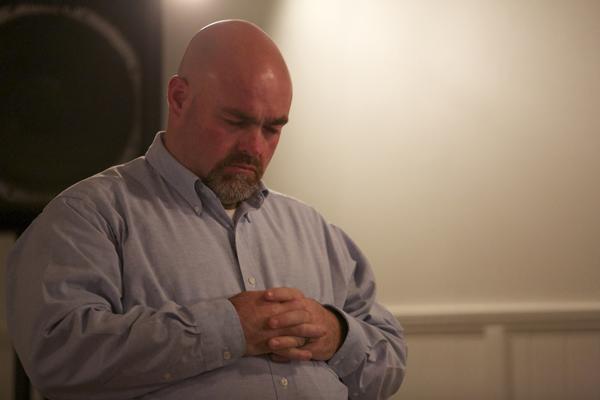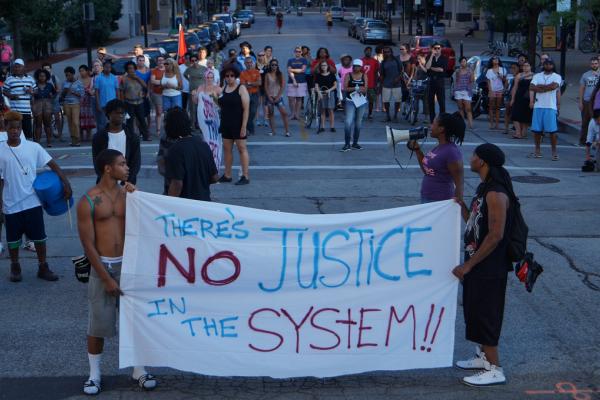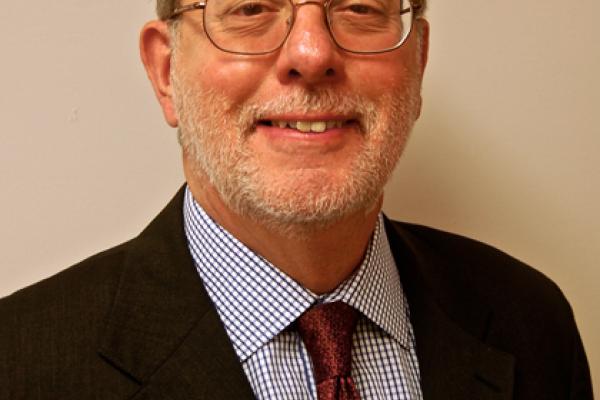Don’t let the media tell you that nothing is going to happen in Washington this year. Sure, Congress may be gridlocked on major legislation as we approach midterm elections, but key decisions are set to be made that will define President Barack Obama’s legacy on climate change. In the coming months, the Environmental Protection Agency is finalizing carbon pollution standards for both new and existing power plants, and the Obama administration will make a final decision on the Keystone XL pipeline.
Because the impacts of climate change, such as drought, more severe weather, flooding, and crop devastation, are more harmful to the world’s poor, these decisions will affect the lives of vulnerable people everywhere. As a Christian, I cannot sit idly by while God’s children are suffering from the devastating effects of irresponsible environmental degradation. I am joining with other people of faith in articulating the moral urgency of caring for God’s creation.
I became a mom for the first time in November. Insert here all of the cliché observances about life-changing experiences and never knowing love before and having a better understanding of God and whatnot. Of course, they’re all true, but so are most clichés.
There are also things no one tells you, instead using above clichés to paper over the less desirable realities of parenthood. No one told me about that feeling — the feeling that the word “overwhelming” doesn’t even begin to describe. No one told me that feeling that makes you weep inconsolably and go off the rails at the thought of leaving the house is actually what it means to love your child. That size of love is truly overwhelming.
While I was pregnant, I tried really hard to avoid all of the parenting books — how to raise well-behaved children, the countless “methods” for getting your child to sleep, how to master breastfeeding (“the most natural thing in the world!” ugh, wrong) — in favor of being a “go-with-the-flow” type parent. In fact, the only book I really read and still lives in a stack by my nightstand is The Sh!t No One Tells You: A Guide to Surviving Your Baby’s First Year.
And being the future mother of a girl, I had grand ideas about “protecting” her from human-made gender norms. I ordered the “Forget Princess; Call Me President” onesie. I shunned head-to-toe pink (for about a week). I created a collage wall in her nursery of black-and-white photos of all of the badass women in her family she has to look up to.
And then this week I caught myself doing something that has the potential to harm my daughter more than being drenched in pink and purple for the next 18 years ever could.
Let’s face it: we are an opinionated society.
We have entire television channels and radio stations dedicated to the propagation of one particular way of thinking. Some people like this channel because they are “more liberal” while others like this channel because they are “more conservative” and the rest of the world falls into the trap that we can be objective (read: ‘fair and balanced’).
We seek out opinions from everything from a new toaster to the new medical center in the area. We want to know people’s experiences about something before we waste our time, money and energy on a futile venture. If a product on Amazon has too many “one-star” reviews I am not going to purchase it. If my friends or family members have a bad experience at a restaurant or store then I will think twice about going there myself.
Sharing our opinions or perceptions is never easy. They can be met with great disdain or hostility. ESPN prides itself on these conflicts. Its marketing plan is to put four talking, opinionated heads in a room and ask a question that none of them can agree on like “Who is the greatest basketball player of all time?” or “Is Tom Brady overrated?”
Some of the greatest conflicts in the world’s history have been over difference of opinion. Governments have been shut down over difference of opinion. Trying to “change” someone’s opinion is hard if not impossible; for some people the “damage” is done and there is no turning back.
The church is not immune to this to this.
The death of Jamie Coots could be read as just another bit of evidence that the universe doesn’t much care what you believe. Physics, biology, geology — all perk along with or without our assent.
Coots may have been the most famous of America’s snake-handling Pentecostal preachers. He was featured last year in a reality show called Snake Salvation. He died after being bitten by a rattlesnake during the regular Saturday service.
According to a report in The Wall Street Journal, this was the ninth time he’d been bitten.
The problem is the systemic injustice inherent in Stand Your Ground laws: just feeling like you are being threatened can justify your response in “self-defense.” Under Florida self-defense laws now, someone can use even lethal force if they “reasonably believe” it is necessary to defend their lives or avoid great harm. How does a jury decide what a “reasonable person” would do under all the circumstances? Even if Dunn really believed there was a gun in the black teenagers’ car and there wasn’t one, he could still be justified in shooting into the car according to Stand Your Ground. The New York Times quoted Mary Anne Franks, an associate law professor at the University of Miami saying, “This trial is indicative of how much of a problem Stand Your Ground laws really do create … By the time you have an incident like this and ask a jury to look at the facts, it’s difficult to re-create the situation and determine the reasonableness of a defendant’s fear.” And unfortunately, the law creates an opportunity for racial factors — whether they’re conscious or not — to trump facts when even one juror who is sympathetic to a defendant’s “reasonable” fear can prevent prosecution.
Scientists and Christian evangelicals can collaborate for the good of society but it will take some serious effort, experts said as they launched a new campaign to change perceptions between the two groups.
The American Association for the Advancement of Science and its Dialogue on Science, Ethics, and Religion program released a major research project on Sunday, at the AAAS annual meeting in Chicago, and announced an upcoming series of conferences mixing believers, scientists, and many who are both.
The massive survey of views on God, religion, science included 10,241 respondents and took a particularly close look at the views of evangelicals and people in science-related occupations.
If you wonder what a right-wing political agenda laden with phony morality would look like, here are two signs.
First, from the increasingly shrill patriarch of Silicon Valley, venture capitalist Tom Perkins, the argument that rich people like him should get more votes in elections than poorer people.
Second, from the ever vigilant Kansas Legislature, a bill that would legalize segregation of gays in the name of protecting the religious freedom of those who loathe gays.
Perkins, of course, rode the gravy train to great wealth by backing those who actually did the work, took the risks, and built something.
This President’s Day, about 20 church leaders, sympathizers, and undocumented immigrants were arrested in front of the White House as part of an act of civil disobedience to protest the nearly 2 million people who have been deported under President Obama.
The core group and about 40 supporters gathered around 1 p.m. on Monday afternoon in Lafayette Park in front of the White House. They held signs that said, “Praying for Relief” and “#Not1moredeportation,” and sang hymns in between short megaphoned speeches that told personal stories. They called for immigration reform. “Not one more, not one more,” they chanted together in both English and Spanish.
The event was organized by Bishop Minerva G. Carcaño of the United Methodist Church, who was the first Hispanic woman to be elected to her position.





